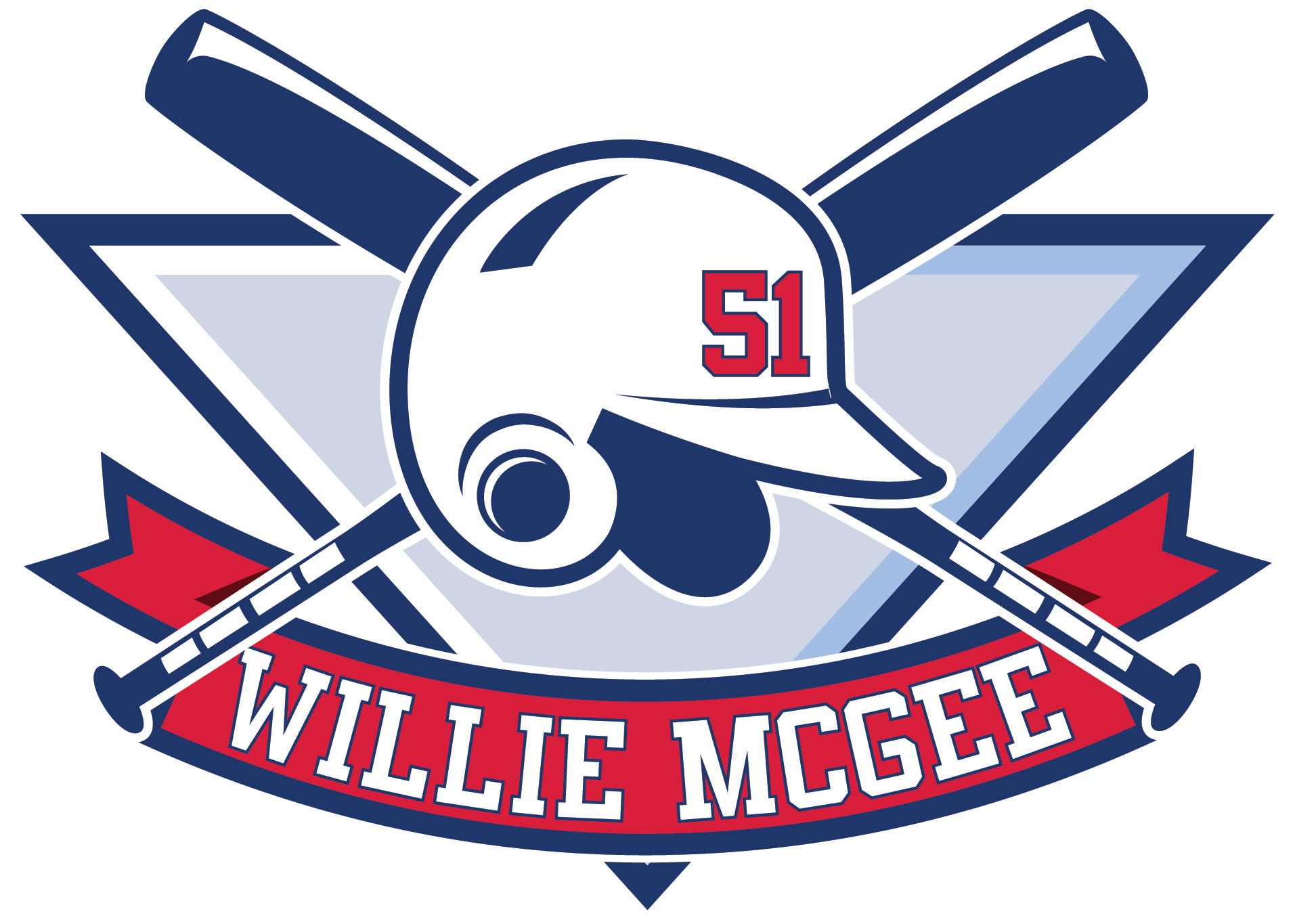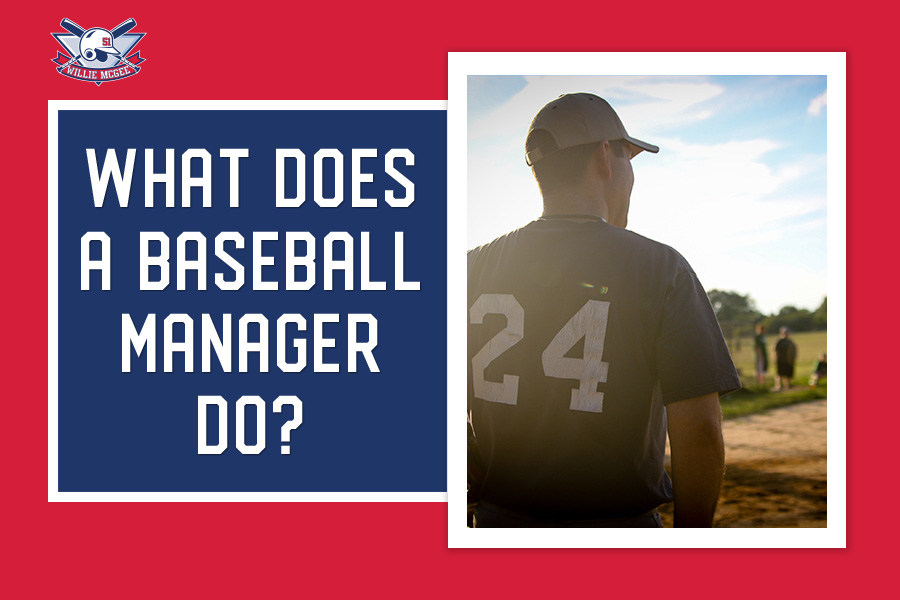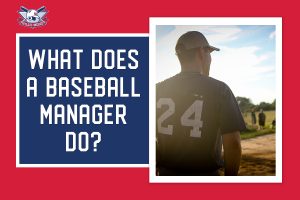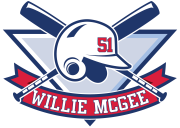There is no doubt that baseball managers wear multiple hats. The responsibilities of skippers go way beyond setting the lineup and batting order. So what does a baseball manager do exactly?
In my career, I’ve personally worked with many baseball managers and can say that the role brings a complex set of responsibilities. The baseball manager’s job behind the dugout is equally important as during the game.
In this article, I will help you familiarize yourself with a baseball manager’s responsibilities and explain the qualifications required to manage a baseball team successfully.
What Does a Baseball Manager Do?
To avoid any confusion, I believe it is best to start with the types of managers in baseball. Generally, each team has a general manager and field manager. But what is the difference?
First, I would like to clarify what is a field manager in baseball. The field manager in baseball is basically the head coach. In a nutshell, the responsibilities of the field managers are regarding the on-field strategy, lineups, training, and giving instructions to the players.
On the other hand, the general manager, or GM, handles the managing responsibilities off-field. The role of the general manager is to handle player transactions and manage the team staff.
No matter that there are two types of baseball managers in theory, in baseball reality, when we say “a manager”, we almost always refer to the field manager. Hence, my article will focus on the role of the field manager.
The role of a baseball manager
Let’s cut to the chase and see what do baseball managers do. The list of the baseball manager’s responsibilities is extensive. It includes:
- Lineup setting
- Making in-game substitutions
- Building strategies
- Setting the clubhouse policy
- Designing baseball practice plan and running team practice
- Evaluating the progress of the team and determining if they meet their goals
- Handling public relations
- Creating an atmosphere where the players do their best
In short, baseball managers are responsible for day-to-day operations. They are constantly trying to improve the club’s dynamics and performance on the baseball diamond.
Interestingly enough, I once witnessed one of the managers getting on the field to play. This is allowed by the baseball rules, and the managers can play even in Major League Baseball if necessary. However, it rarely happens because they must be part of the team roster to be allowed to play.
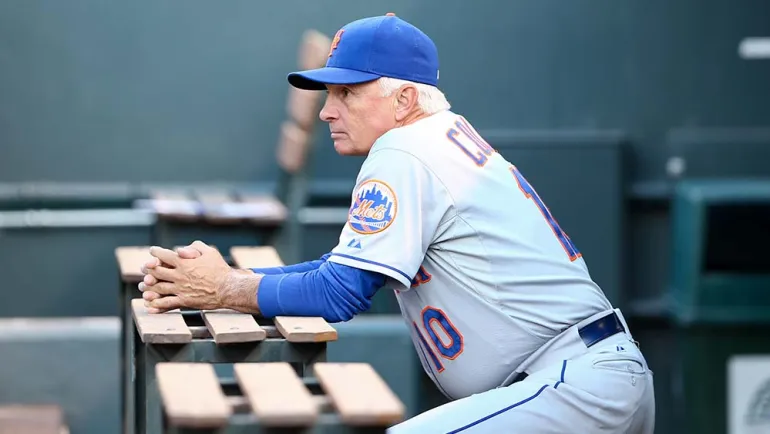
Baseball manager vs coach: Is there a difference?
In my experience as a baseball player, I’ve noticed that baseball managers have different responsibilities than coaches. First of all, baseball managers have always been the head of the coaching staff, while baseball coaches are just members.
Most of my coaches specialized in one aspect of the game. Hence, I’ve worked with different types of coaches:
- Bench coaches,
- Pitching and bullpen coaches,
- Hitting coaches,
- Base coaches,
- Strength and conditioning coaches.
On the contrary, the baseball manager sees the whole picture and is responsible for managing the team as a whole. That’s why I’ve heard the baseball manager deciding on key strategies while the baseball coach’s responsibilities were more focused on offering us advice and tactical suggestions.
At the end of the day, I’ve always seen the manager having the final say. And not just for the game, the baseball managers have always been in charge of the team’s chemistry and discipline.
So with all these differences, why are baseball coaches called managers? Unfortunately, not all baseball coaches are called managers. Only the head coach is the team manager, while the other coaches are just part of his staff and assist him. The reason why we, as baseball players, call the head coach a manager is due to tradition.
Responsibilities of a Baseball Manager
Making decisions in player lineups
The responsibilities of the baseball manager on the diamond field start with building a lineup. The manager makes the batting order and the positioning of the defense players.
The club’s front office gives the manager a list of players, which is called a team roster. Then the manager plans the lineup from those players.
The manager gives the head umpire the final team lineup card before the game starts. The batting lineup is final when the umpire gives the lineup cards to the opposing managers.
To do a strategically good lineup, the manager takes different things into account, including:
- Coaches advice
- The preparedness of the payers and their health
- Recommendations from the general manager
- Statistical analytics
- Matchups with the opposing pitcher
Making strategic decisions during games
Once we start playing ball, the responsibilities of the baseball manager shift to deciding on in-game strategies and in-game substitutions.
In-game strategy
The in-game strategy includes complex decisions about the game and includes:
- Making substitutions
- Planning and adjusting the defensive alignment
- Hit and run
- Strategies for stealing bases
- Pitch outs
During the game, the baseball managers give the players instructions and tips for fielding and base running. In reality, most of the recommendations for changes come from the coaching staff, but the manager is always the one who decides whether to implement them in the game or not.
What makes every baseball manager unique is that every one of them has different visions about the in-game strategy. The only thing they have in common is that they tailor the in-game strategy according to the qualities of the team.
In-game substitutions
Wise and timely in-game substitutions might change the whole outcome of the game. Hence, baseball managers need to bear the pressure to make in-game substitutions of players.
There are different types of substitutions in baseball, and they are:
- Pinch-hitting
- Pinch-running
- Pitching change
- Defensive replacement
Of all baseball players, the pitchers are most commonly replaced. One of the reasons is that the manager can call a pitcher substitution at any time during the game.
Leadership
Another important role of the baseball manager is to be a leader. The teams of the good managers I’ve been a part of were a cohesive unit with positive team culture.
On another note, baseball management is not all about embracing a positive attitude and performance. The best of the best baseball managers know how to approach the players’ mistakes, encourage them and show them how to improve.
Some of the ways baseball managers can prove they are good leaders include:
- Demonstrates accountability by setting rules that will benefit everybody
- Creates a positive atmosphere
- Promotes honesty and trust
- Every action proves to the players that the manager is confident and capable of making decisions
- A good leader has realistic short and long-term expectations for their team
Developing and training players
In every team I used to play in, we had multiple goals we worked toward achieving. So, according to the short and long-term goals, the manager used to develop a practice plan and practice schedule.
More often than not, our practices were held by the position coaches, but the manager was frequently there to observe how we were doing and the work of the position coaches. Also, managers were there when the team had bullpen sessions and batting practice.
But managers don’t have only a passive role in practice. Quite the opposite. A lot of managers actively participate by leading certain drills. Additionally, the managers focused on the performance of the players so they could have a conversation with the players if necessary.
Communicating with players and coaching staff
Baseball managers need excellent communication skills. They communicate daily with the players as well as the coaching staff. Managers need to ensure their communication is effective.
However, having good communication skills is not enough. Every baseball manager should be able to think and listen to the opinions of others critically. Every day, the baseball manager gets advice from the assistant coaches and general manager.
A great baseball manager must know how to assess the opinions of other members of the coaching staff and use them to improve the team’s performance.
In addition, baseball managers are generally responsible for maintaining a healthy relationship between the players and coaching staff. Thus, they also need excellent conflict-resolution skills.
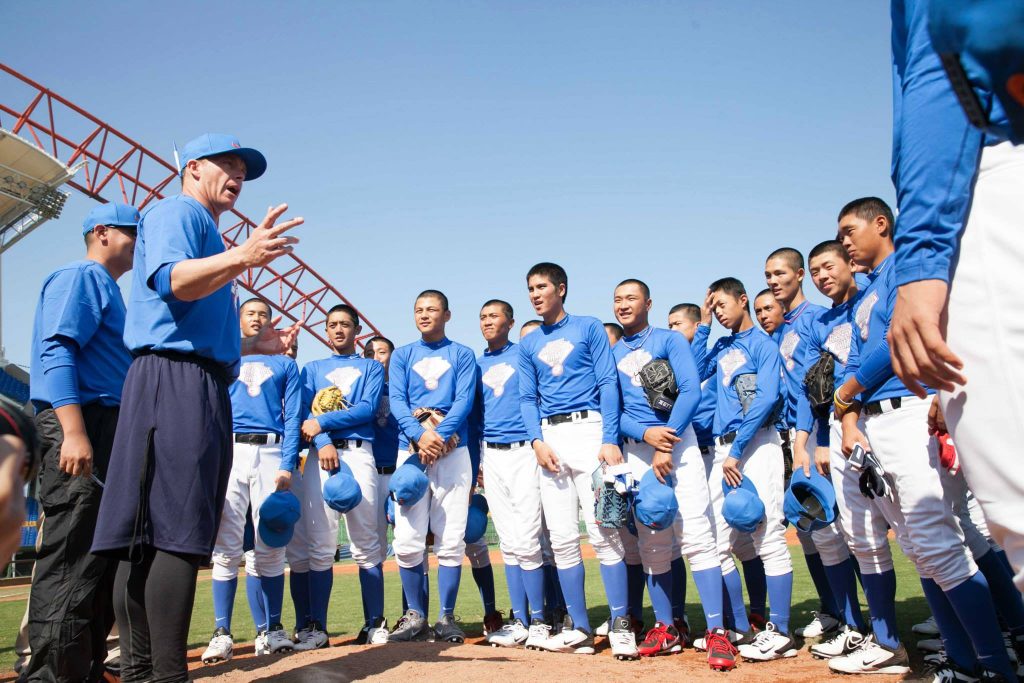
Handling media and public relations
When I used to play, and till this day, the baseball manager’s job on game day doesn’t only include the responsibilities regarding the game. Instead, my managers have taken the time to meet with the media, answer their questions and advocate for us, before and after every game.
Although it seems like an easy part of the job, the reality is quite different. I’ve seen many managers struggling to handle the pressure from the media and not knowing how to answer tough questions.
On the other hand, some of the best managers I’ve seen have extraordinary communication skills. They were prepared for the harsh media comments and stayed calm when they were accused of mistakes in the game strategy. Moreover, they knew how to communicate with us as players through the media and encourage us or show us our mistakes.
A great manager must know how to represent the team in the best light and defend it from negative media coverage. All in all, baseball managers are the face of the team and franchise.
Setting the clubhouse policy
Aside from being the head coach, the manager is roughly said to be the governor of the clubhouse. The clubhouse rules are some of the ways the managers ensure there is team discipline, respect, and excellence.
During the time we used to stay in the clubhouse, we had a lot of rules we needed to adhere. The rules ranged from everything, starting from music allowance to what we had to wear to the games.
Some of the most important rules are reporting in time before games, and the number of family members allowed in the clubhouse. We were held accountable when we broke the clubhouse rules.
The clubhouse rules were equal for everybody, making a harmonious and peaceful environment among the players.
What Qualities Should a Great Baseball Manager Have?
Now that I have explained what does a baseball manager do, it’s time to see what it takes to become one. Simply put a great baseball manager has a set of different skills for leadership, strategy-making, and interpersonal skills.
The three most important qualities of a good manager are:
- In-depth baseball knowledge – all of the great managers I had had a deep understanding of the rules. Additionally, they knew how to use the insights from each game and improve the team’s performance.
- Communication and leadership skills – of what use is your knowledge if you don’t know how to pass it to the players? Managers must have excellent leadership and communication skills to share their wisdom and know how to communicate in different situations.
- Excellent decision-making skills – from the start of the game until the very end, baseball managers need to make a lot of clever and fast decisions. Most of my managers were always alert and made fast decisions about in-game changes and game strategy.
Other skills
What makes a good baseball manager is a subjective topic. One baseball manager can be excellent for some players, while others might find his strategies and coaching style inadequate.
In addition to the skills mentioned above, I found the following characteristics of the manager extremely useful when I used to play.
- Player development skills
- Adaptability to new situations
- Respect and trust of the players and knowing how to build it within the team
- Preparation for managing situations under pressure
- Conflict resolution skills
- Work ethics
- Analytic skills
- Developing high-quality practice programs
- Knowing how to manage media and team staff effectively
- Team building skills
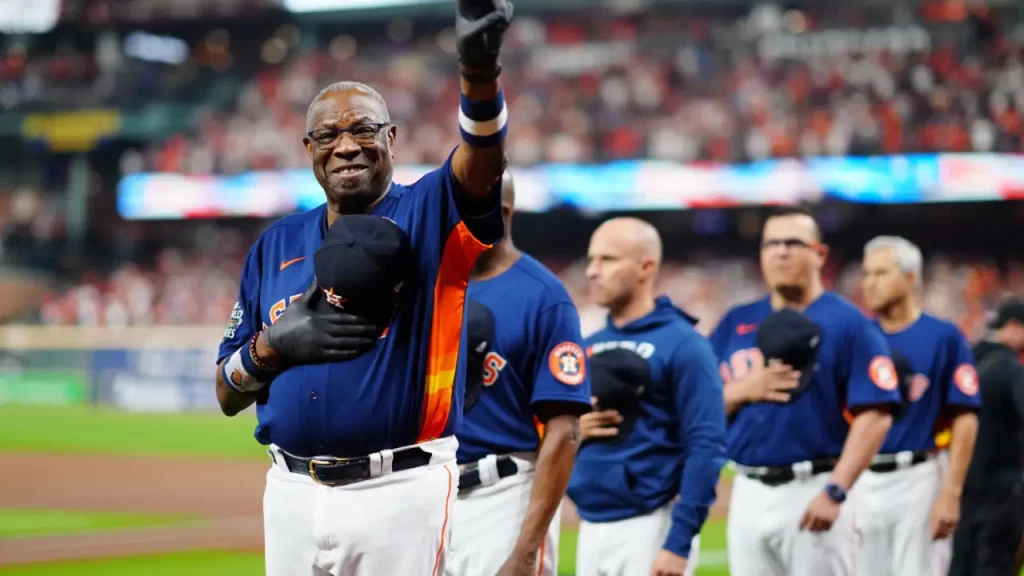
Best Baseball Managers in MLB History
I always say that the best way to learn something is by combining theory and practice. So who are the best baseball managers in MLB history who have successfully juggled all the responsibilities?
Here are the best baseball managers in MLB history according to the number of wins.
| Manager | Number of wins |
| Connie Mack | 3,731 |
| Tony La Russa | 2,902 |
| John McGraw | 2,763 |
| Bobby Cox | 2,504 |
| Joe Torre | 2,326 |
| Sparky Anderson | 2,194 |
| Bucky Harris | 2,158 |
| Dusty Baker | 2,152 |
| Joe McCarthy | 2,125 |
| Bruce Bochy | 2,063 |
Frequently Asked Questions
Can a baseball manager be fired during a season?
Yes, baseball managers can be fired during the Major League Baseball season. In fact, it happens more often than you might imagine. For instance, five managers were fired during the 2022 MLB season.
Why are baseball managers called skippers?
The baseball managers are called skippers, which is a synonym for the captain of the ship. This comparison is used in the baseball world because the managers are responsible for the whole team, and they somehow direct the team on the right path to winning the game.
How are baseball managers selected for a team?
The selection process for baseball managers takes a lot of time and dedication. Baseball managers are selected according to their managerial qualities, experience, and education. Typically, the general manager or GM is responsible for hiring the field manager.
How much does a baseball manager make?
With great responsibilities comes a great salary. According to Salary, the average baseball manager makes $2.7 million a year in the United States. However, the salaries can range between $2.4 million and hit a high of $3.17 million. Where the manager falls in this pay range depends on the experience and the team they will be hired to coach.
Who is the longest-serving manager in baseball history?
Connie Mack holds the record for the longest-tenured manager in baseball history. He was the Philadelphia Athletics manager for 49 years, from 1901 to 1950. Regarding the MLB managers in particular, the longest-tenured manager that is still alive is Terry Francona, who has led the Cleveland Guardians for 11 seasons.
How many coaches on a baseball team?
Each team has one field manager who can have multiple assistant coaches with specialized responsibilities. Between 1981 and 2012, baseball teams in the MLB could formally have a total of six uniformed coaches. However, from 2013 and on, baseball teams can appoint seven coaches.
Final Thoughts
Baseball managers get a lot of criticism from fans, but most of them do not know what does a baseball manager do. Once I understood the responsibilities of the baseball managers, I had more respect for them.
Their job includes a lot of duties that are crucial for the whole team. Baseball managers are not just there to sit in the dugout. They have a significant role in developing strategies, being leaders, ensuring team cohesion, and handling the questions of the media.
Baseball managers are indispensable pillars in the baseball world if they are able to balance their responsibilities successfully.
